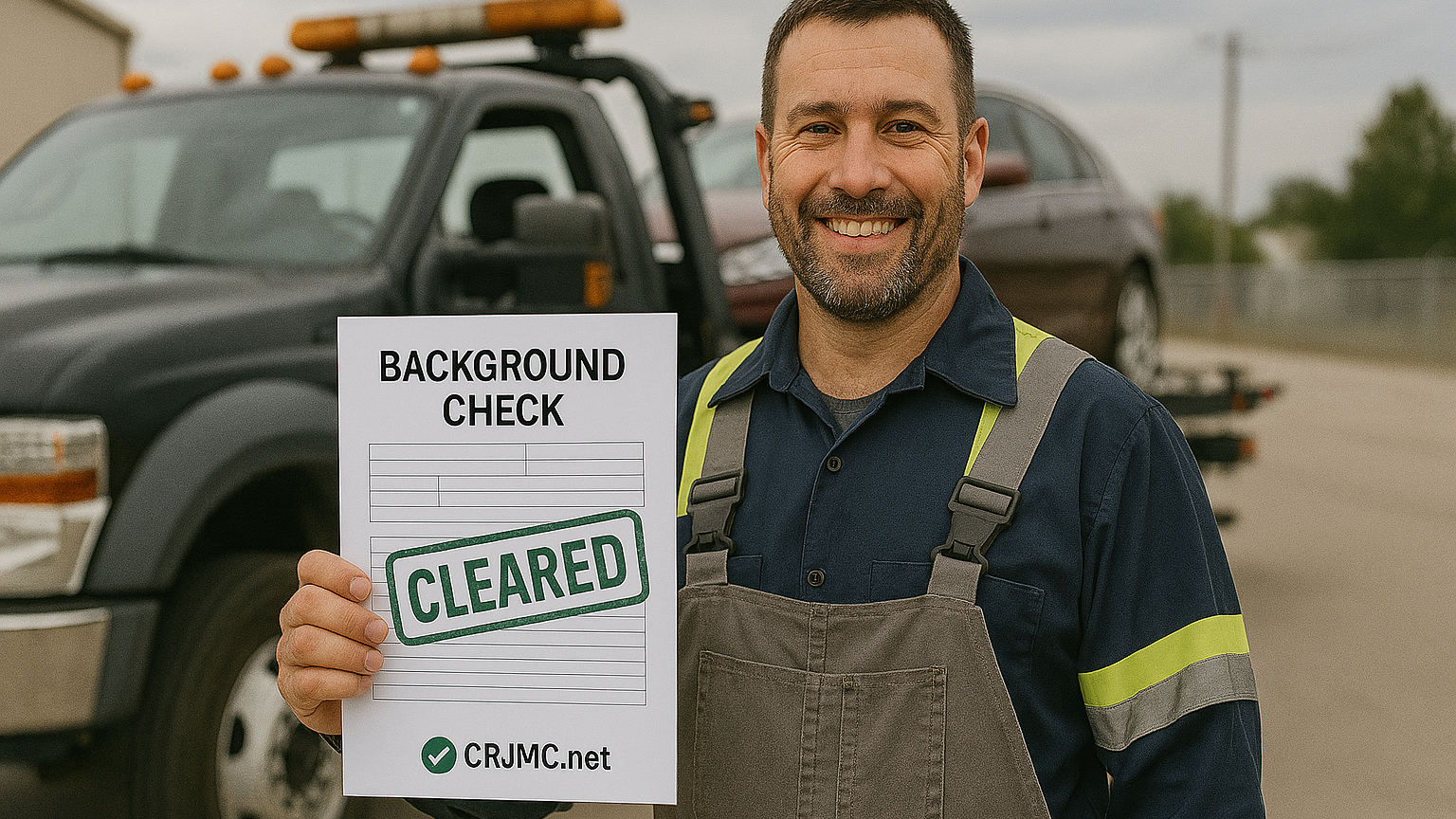So You Want to Be a Vehicle Storage or Tow Operator in Ontario?
Thinking about joining the exciting world of towing or vehicle storage in Ontario? Let's walk through what you'll need to get started and stay compliant with the latest regulations.
The Certification Timeline - What You Need to Know
Ontario has been implementing the Towing and Storage Safety and Enforcement Act (TSSEA) since June 2021, with important deadlines:
January 1, 2024 All tow and vehicle storage operators must be certified
July 1, 2024 All tow truck drivers must be certified
These dates aren't suggestions - they're requirements for legally operating in the industry!
The Importance of Your CRJMC
💡 Pro Tip: Your Criminal Record and Judicial Matters Check (CRJMC) is perhaps the most important element of your certification process!
Every tow operator and vehicle storage operator needs to pass this background check - and if your business is incorporated, all your active corporate officers need to pass it too.
Getting Your CRJMC - Easier Than Ever!
Good news! You can now obtain your CRJMC through CRJMC.net, which works with an authorized third-party provider. The process is:
Fully online - no need to visit a police station
Quick - complete in just 15 minutes
Convenient - apply anytime, anywhere
CRJMC.net makes meeting this requirement simple, saving you time as you set up or maintain your business.
Don't Forget About Renewals!
When it's time to renew your certification, you'll need a fresh CRJMC each time:
Tow operators and vehicle storage operators: new CRJMC yearly with your certification renewal
Tow truck drivers: new CRJMC every 3 years with your certification renewal
Keeping your CRJMC current is just as important as your initial certification!
Could Past Issues Affect Your Eligibility?
The certification process takes your history seriously. Issues under these laws could impact your eligibility:
Criminal Code of Canada
Highway Traffic Act
Controlled Drugs and Substances Act
Compulsory Automobile Insurance Act
What Else Do Tow Operators Need?
You will need
A valid Ontario Commercial Vehicle Operator's Registration (CVOR) certificate or National Safety Certificate (NSC)
Insurance that includes:
$2 million in liability insurance
$100,000 in consumer vehicle insurance
$50,000 in cargo liability insurance
All your vehicles meeting commercial safety standards
What About Vehicle Storage Operators?
For those focusing on vehicle storage, here's your checklist:
The same insurance package as tow operators
A physical office in Ontario (virtual offices won't cut it!)
Storage locations that comply with local municipal zoning rules
Renewal Schedule - Mark Your Calendar!
Staying certified means keeping up with renewals:
Tow operator and vehicle storage certificates: Every year
Tow driver certificates: Every 3 years
And remember, each renewal requires a fresh CRJMC!
Are There Any Exceptions?
Not every business needs certification. You might be exempt if:
You only provide long-term storage (30+ days) with clear upfront contracts
You're a repair shop that doesn't charge for storage during repairs or while waiting for pickup
You're a tow operator just passing through Ontario with a tow that started outside the province
The Friendly Bottom Line
Being in the towing or vehicle storage business in Ontario means delivering a service that helps motorists when they need it most. While the regulations seem detailed, they're designed to ensure everyone in the industry operates safely, fairly, and professionally.
With services like CRJMC.net making the background check process easier than ever, there's never been a better time to pursue your goals in this industry. Plan carefully, meet all the requirements, and you'll be well on your way to running a successful and compliant business that makes a real difference in your community!
